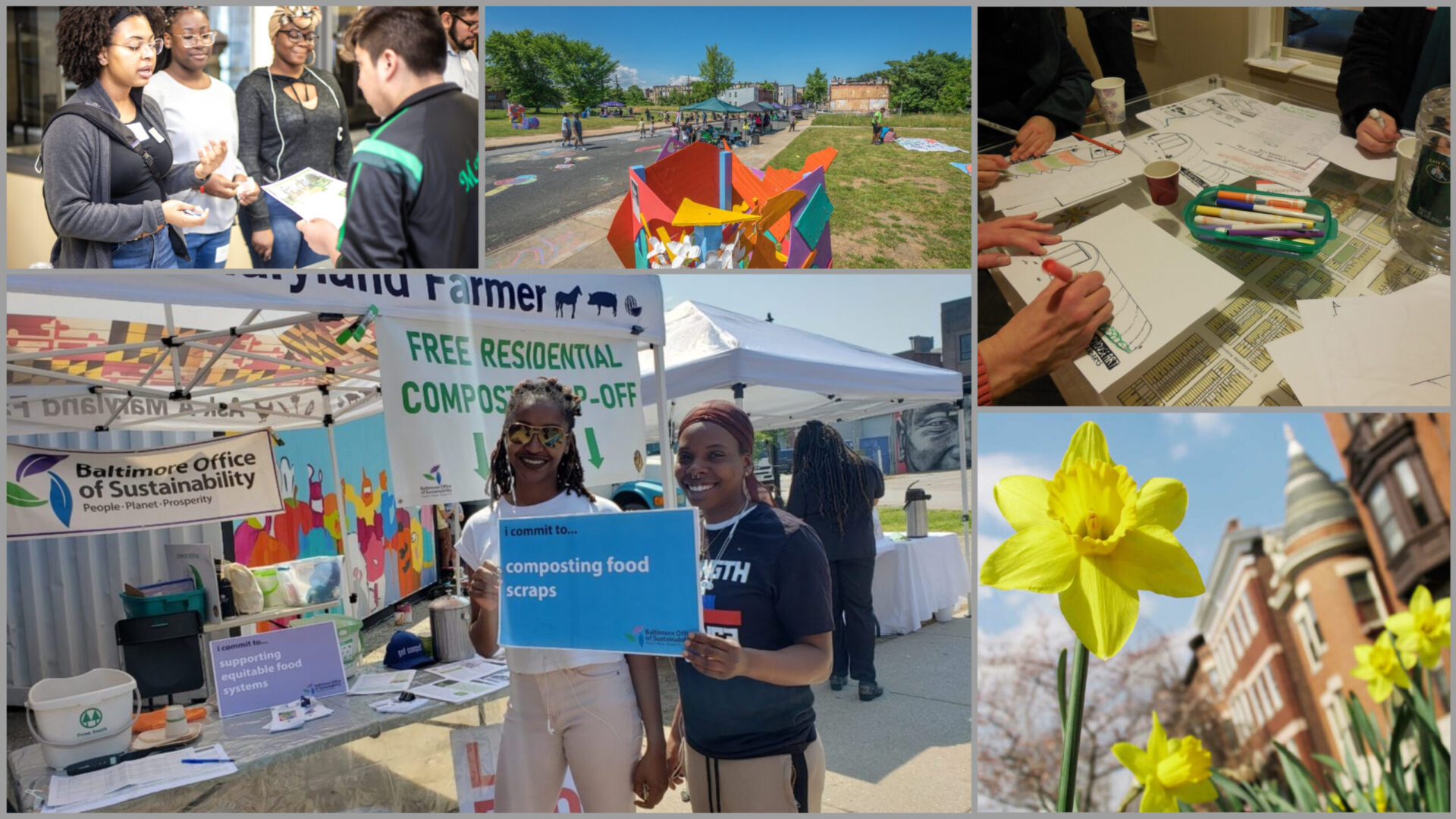Baltimore Environmental Offset 2025 Grants
The City of Baltimore’s 2025 Environmental Offset Grants Program is now open as of Wednesday, December 4th, 2024! The Office of Sustainability will accept proposals from non-profit organizations wishing to access Critical Area Management Program (CAMP) and Forest Conservation Offset monies. This grant is intended to encourage existing and prospective grantees to develop exciting ideas for projects that will restore and expand our tree canopy and urban forests, improve the quality of our waterways, and improve quality of life and habitat in Baltimore.
Important Information
Application Opens: Wednesday, December 4, 2024
Application Deadline: Friday, January 17, 2025 at 11:59PM EST
Applicant Information Session:
Tuesday, December 17, 2024 at 2:00PM EST | REGISTER HERE
Grant Application Portal:
https://baltimorecivicfund.submittable.com/
More Information:
https://www.baltimorecivicfund.org/environmental-offset-grant-program
Chesapeake Bay Critical Area Program Background
The Chesapeake Bay Critical Area Law was created by the Maryland General Assembly in 1984 to protect the Chesapeake Bay and its tributaries while fostering more environmentally sensitive development in areas near the shoreline. The law gave local governments the authority to implement the program and instituted the Chesapeake Bay Critical Area Commission to establish statewide rules and guidelines.
The City of Baltimore has a unique set of guidelines for adhering to the Critical Area requirements, which anyone wishing to develop or redevelop land within 1,000 feet of the City’s shoreline (the “Critical Area”) must follow. The goals of the City’s program are to improve water quality, conserve and restore habitat, and promote a more attractive and sustainable environment for Baltimore’s citizens.
In many cases, the requirements of the CAMP can be met through on-site practices like planting trees and shrubs and removing impervious surfaces. When the requirements cannot be met on site, mitigation can occur off-site at a different location in the Critical Area. Because Baltimore’s Critical Area is heavily developed, such off-site mitigation is not always possible. In these cases, developers may be allowed to pay into the CAMP Offset Fee Fund, managed by the Department of Planning.
To maximize the impact of these funds, the Department of Planning developed the CAMP grant program to support and leverage the efforts of communities and organizations engaged in activities that support goals of the Critical Area program. The Department welcomes and encourages projects that align with or contribute to the goals of adopted plans, such as The Comprehensive Plan, 2019 Sustainability Plan, and others. Projects that contribute to or complement priority programs and initiatives such as the Baltimore Green Network, INSPIRE, or others are also encouraged. To learn more about current plans, programs, and initiatives, visit the Department of Planning at www.planning.baltimorecity.gov.
Forest Conservation Program Background
The Forest Conservation Act was signed into Maryland law in 1991. It establishes rules for development sites that minimize the loss of existing forests and replenish tree cover. The City of Baltimore has adopted local legislation in compliance with the State law, and enforces the Forest Conservation Program for development occurring within the city limits. In Baltimore, Forest Conservation requirements apply to any project outside the Critical Area that disturbs 5,000 square feet or more.
When afforestation, reforestation, or specimen tree mitigation requirements cannot be met on site and an acceptable off-site location cannot be identified, a fee can be paid into the City’s Forest Conservation Fund, managed by the Department of Planning. This year, Forest Conservation funds will be made available alongside CAMP funds under this grant program.
Eligible Projects
All proposals must meet one or more of the following Forest Conservation Program goals and/or Critical Area Act’s state-wide goals:
- To provide reforestation, reforestation, and/or support achievement of urban canopy goals;
- To improve water quality by reducing stormwater pollution and;
- To conserve, enhance and protect wildlife habitat.
If you have any questions, please contact Rachel Whiteheart at Rachel.Whiteheart@baltimorecity.gov or Grace Hansen at Grace.Hansen@baltimorecity.gov or the Baltimore Civic Fund (submissions@baltimorecivicfund.org with “2025 Environmental Offset Grant Application Question” in the subject line).

